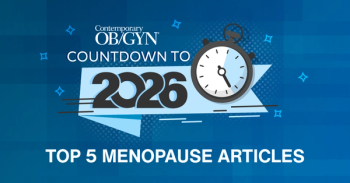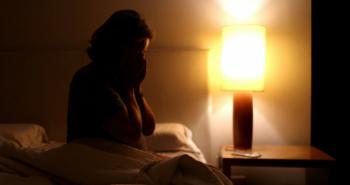
- Vol 67 No 11
- Volume 67
- Issue 11
Past traumas may worsen menopausal symptoms and wellbeing at midlife
Research in Menopause connects history of physical/sexual abuse, financial instability with worse menopausal symptoms and overall wellbeing at midlife.
Psychosocial stressors in a woman’s life—from childhood through reproductive age—may lead to poorer wellbeing and worse menopause symptoms at midlife, according to research in the North American Menopause Society’s (NAMS) journal Menopause.1
These findings are based on data collected for Project Viva—an ongoing longitudinal research project from Harvard Medical School in Boston, Massachusetts—dedicated to improving the health of mothers and their children by looking at a multitude of factors during pregnancy and after birth.2
From 1999 to 2002, the research team recruited 2760 pregnant women during their first trimester of pregnancy from 8 obstetric offices in eastern Massachusetts. The team at Harvard uses a variety of methods to collect data each year, including questionnaires, interviews, medical records, examinations, and biospecimen samples.
The study that examined trauma history and menopause included data from 682 women whom researchers followed for almost 2 decades. In pregnancy, women self-reported psychosocial stressors like past physical/sexual abuse and financial instability, from childhood to current pregnancy. At the time, the median age was 33.3 years.1
Nearly 20 years later, they reported their menopausal symptoms on a 0- to 44-point scale and rated their wellbeing on a scale from excellent to poor. For this component, researchers compared ‘good/fair/poor’ ratings with ‘excellent/very good.’ Women also reported on generalized anxiety and depressive symptoms, ranging from ‘more than minimal levels’ to ‘none/minimal.’
Almost 40% of women reported a history of physical abuse, which then correlated to worse menopausal, psychological wellbeing, general health, and depressive symptoms. Nearly 8% of women reported a history of physical abuse, which correlated with worse menopausal symptoms and general overall health. Research showed no impact on depressive symptoms in women who reported physical abuse. More than 10% of women reported a history of financial instability, which was associated with worse menopausal symptoms and general health, along with greater depressive symptoms.
Psychosocial stressors and generalized anxiety symptoms at midlife were not correlated, according to the study’s conclusions.
Unlike previous studies that focused more on current abuse, this research uncovered the potential long-term effects of psychosocial stressors on women throughout their lives, 15 to 20 years later.
“This study provides additional evidence to support the link between adversity earlier in life with worse menopause symptoms and poorer well-being in midlife women,” said Stephanie Faubion, NAMS medical director. Additional research, she said, should focus on understanding the effect of cumulative exposure to chronic and repeated stress on the health of women in midlife and beyond.
A previous study involving Project Viva data investigated
Reference
- Faleschini S, Tiemeier H, Rifas-Shiman SL, et al. Longitudinal associations of psychosocial stressors with menopausal symptoms and well-being among women in midlife. Menopause. 2022;Publish Ahead of Print. doi:10.1097/gme.0000000000002056
- Project Viva | A Study of Health for The Next Generation. Harvard.edu. Published 2019. Accessed September 28, 2022. https://www.hms.harvard.edu/viva/
Articles in this issue
about 3 years ago
Bowel injury after operative hysteroscopyabout 3 years ago
Readers React: Neutral language has adverse effectsover 3 years ago
EMIGS: A new standard of careover 3 years ago
Endometrial ablation in the office settingover 3 years ago
Fundraising for early-stage start-upsover 3 years ago
Cheerleading and game plansover 3 years ago
Virtual IUD placement training improves clinician confidenceNewsletter
Get the latest clinical updates, case studies, and expert commentary in obstetric and gynecologic care. Sign up now to stay informed.









